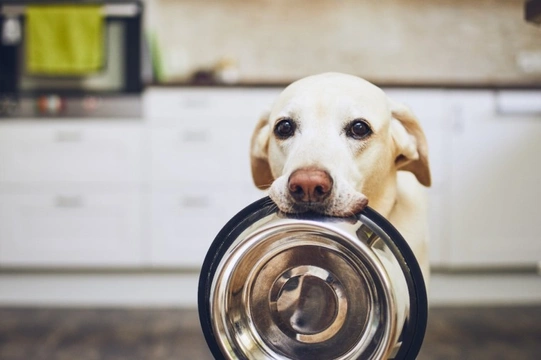
Will there be dog food shortages due to coronavirus and the associated restrictions?
We’re living in strange times at the moment and much of the general public is very concerned about a wide range of different things, from their health and that of their families to their potential income, taking care of their essential needs; all due, of course, to coronavirus and the associated restrictions.
Anyone who owns a pet will have an additional layer of concern too about the knock-on effect that the ongoing stay at home measures, business closures, and supply chain disruptions will have as well. Given that now as we approach the end of March, certain goods are still notably absent or in short supply on supermarket shelves; like rice, pasta and toilet roll, it is only natural that many dog owners are asking “will coronavirus cause dog food shortages?” As the situation continues to play out over the coming weeks and months, this is a question that pet shops and manufacturers of pet food are keen to reassure dog owners about for the future
The Pet Food Manufacturing Association or PFMA, in conjunction with a number of pet food retailers, have issued a statement to reassure dog owners that coronavirus won’t mean getting dog food is difficult; but dog owners have a part to play in this too.
With this in mind, this article will outline where we stand in terms of dog food supply during coronavirus restrictions in the UK, how pet food manufacturers and retailers are viewed in terms of their role in things, and what dog owners can do to ensure that their dogs have enough food; without contributing to avoidable supply chain issues. Read on to learn more.
Are there dog good shortages due to coronavirus?
No. The PFMA assures the UK’s dog owners that there is a “good” supply of dog food available for pets in the UK. Dog owners should not be concerned that, assuming that they follow their normal dog food buying patterns, the shelves will be empty or there won’t be enough dog food to go around due to coronavirus.
As was the case recently with toilet paper shortages, any gaps on the shelf where dog food should be is/was short-term in nature, and caused by bulk-buying or panic buying, which supply chains were not prepared for, and had to play catch-up to mitigate.
Will dog food manufacture and distribution be suspended due to coronavirus?
No. Whilst customer-facing businesses selling non-essential goods and services (like clothes and electrical goods) were forced to close as part of the government’s stay at home measures, this is not the case for businesses and operations that make or import dog food, nor for pet shops that sell it either in-store or by mail order.
The government recognises pet food as an “essential” product, and just as is the case for people who work in food production and supply for human food, so too are those whose jobs are producing or distributing pet food also classified as key workers.
Will dog food supply chains be disrupted due to coronavirus?
The government have of course asked businesses that continue to trade to do so in such a way as to avoid contact between people wherever possible, but they are not halting or restricting dog food supply chains.
However, disruption to dog food supply chains on an erratic or short-term basis might theoretically occur if a large number of the population fell ill with coronavirus simultaneously and were unable to work. Preventing a large percentage of the population from contracting Covid 19 coronavirus all at the same time is the whole point of the government’s social distancing measures, however, and whilst this is designed to avoid acute pressure on the NHS, it will also have an overall beneficial effect to keep the country moving too.
How can dog owners help to ensure there’s enough dog food in the months to come?
A mentioned, dog food production and supply is continuing, and there is no practical or legal reason why there should be dog food shortages due to coronavirus.
The possible situations that could cause such shortages are either if a large percentage of people working in dog food manufacture and logistics all fell ill at the same time, or the general public stockpiled dog food needlessly.
This means that every dog owner in the country has a role to play to ensure they can get enough food for their own dog over the course of the coronavirus crisis, and that other dog owners can too.
First of all, respecting the stay at home measures and maintaining good hygiene is integral to this; this is designed to slow the spread of coronavirus and ensure that cases are spread out rather than all happening within a very short space of time. This will help to avoid delays and shortages in goods due to a lack of sufficient members of the workforce.
Secondly, shopping sensibly and normally will help to ensure that there is enough dog food for everyone, and this means avoiding panic buying or stock piling.
Dog owners are advised to keep two weeks of their dog’s usual food on hand to be safe, but not to bulk-buy or otherwise shop for dog food differently to how you normally would. Supply chains are not prepared for such behaviour, and hoarding dog food is the key thing most likely to cause shortages, which in turn becomes self-perpetuating and worsens the issue.



